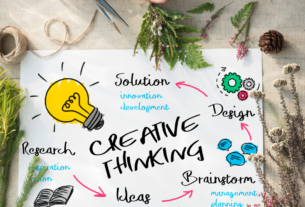The power of gratitude and developing a gratitude practice
Gratitude is the practice of recognizing and appreciating the good things in our lives, no matter how big or small. It is a powerful tool that can help us cultivate a more positive mindset improve our mental and physical health, and deepen our relationships with others. Studies have shown that regularly practicing gratitude can boost our happiness. Reduce symptoms of depression and anxiety, increase our resilience in the face of adversity and even improve our sleep quality. In this article, we will explore the power of gratitude and offer tips for developing a gratitude practice. Sure, here are the steps to develop a gratitude practice and understand its power:
Understand the Power of Gratitude:
Gratitude is the practice of being thankful and appreciative of what you have. Its helps to shift our focus from what we lack to what we have, which leads to greater happiness, positivity, and resilience. Gratitude is the practice of acknowledging and appreciating the good things in our lives. It has been linked to numerous benefits. Including improved physical and mental health, stronger relationships, and greater happiness. By focusing on what we have instead of what we lack, we can cultivate a positive mindset and enhance our overall well-being.
Start a Gratitude Journal:
Start a gratitude journal to write down things you are thankful for every day. Make it a habit to write down three things you are grateful for every day. It can be anything big or small such as a good cup of coffee, a loving partner, or a beautiful sunset. A gratitude journal is a tool used to cultivate a positive mindset by writing down things you’re thankful for each day. By focusing on the good in your life, it can improve your mood, reduce stress, and increase overall well-being. Simply write down three things you’re grateful for each day to start reaping the benefits.
Express Gratitude to Others:
Expressing gratitude to others is a great way to cultivate positivity and strengthen relationships. Take time to thank the people in your life for the things they do for you or simply for being there. Expressing gratitude to others is important because it not only makes them feel appreciated and valued. It also fosters positive relationships and encourages more kindness and generosity. Whether it’s a simple thank-you note, a verbal expression of appreciation, or a thoughtful gesture, taking the time to show gratitude can have a big impact on others and on ourselves.
Practice Mindfulness:
Mindfulness is the practice of being present and aware of the present moment. Incorporate mindfulness into your gratitude practice by taking a few moments each day to reflect on the things you are grateful for. Mindfulness is the practice of paying attention to the present moment, without judgment. It involves observing one’s thoughts, feelings, and sensations without becoming attached to them or trying to change them. By cultivating mindfulness, one can increase self-awareness, reduce stress and anxiety, and improve overall well-being.
Use Gratitude as a Coping Strategy:
When faced with challenges or setbacks, use gratitude as a coping strategy to help shift your mindset from negative to positive. Focus on what you have instead of what you don’t have, and be thankful for the support and resources available to you. Gratitude as a coping strategy involves focusing on the positive aspects of one’s life and expressing appreciation for them, even in difficult times. By shifting one’s perspective to what they have rather than what they lack, it can help reduce stress, improve mood, and increase overall well-being.
Make Gratitude a Daily Habit:
Make gratitude a daily habit by incorporating it into your daily routine. Practice gratitude in the morning, before bed, or at any other time that works for you. Consistency is key to reaping the benefits of a gratitude practice. Making gratitude a daily habit involves intentionally reflecting on and motivate yourself and appreciating the positive aspects of one’s life. It can be as simple as starting each day with a gratitude journal or taking a moment to express thanks to someone. Consistent practice can lead to increased happiness and well-being.
In summary, gratitude is a powerful practice that can help to cultivate positivity, happiness, and resilience. By starting a gratitude journal, expressing gratitude to others, practicing mindfulness. Using gratitude as a coping strategy, and making gratitude a daily habit, you can develop a gratitude practice and experience the many benefits it offers.
Conclusion:
In conclusion, the power of gratitude and developing a gratitude practice cannot be underestimated. Research has shown that practicing gratitude regularly can lead to numerous physical and psychological benefits, such as improved mood, better sleep, and reduced stress levels. Gratitude can also enhance relationships and foster a greater sense of social connection. Developing a daily gratitude practice doesn’t have to be complicated or time-consuming, but can have a profound impact on our overall well-being and outlook on life. Ultimately, expressing gratitude is a simple yet powerful way to cultivate greater happiness and fulfillment in our lives.
FAQs:
How do you develop and practice gratitude?
Developing and practicing gratitude involves intentionally focusing on the positive aspects of your life, expressing appreciation for the people and things you have, and reframing negative thoughts. Daily gratitude journaling, expressing thanks to others, and mindfulness practices can help cultivate gratitude.




